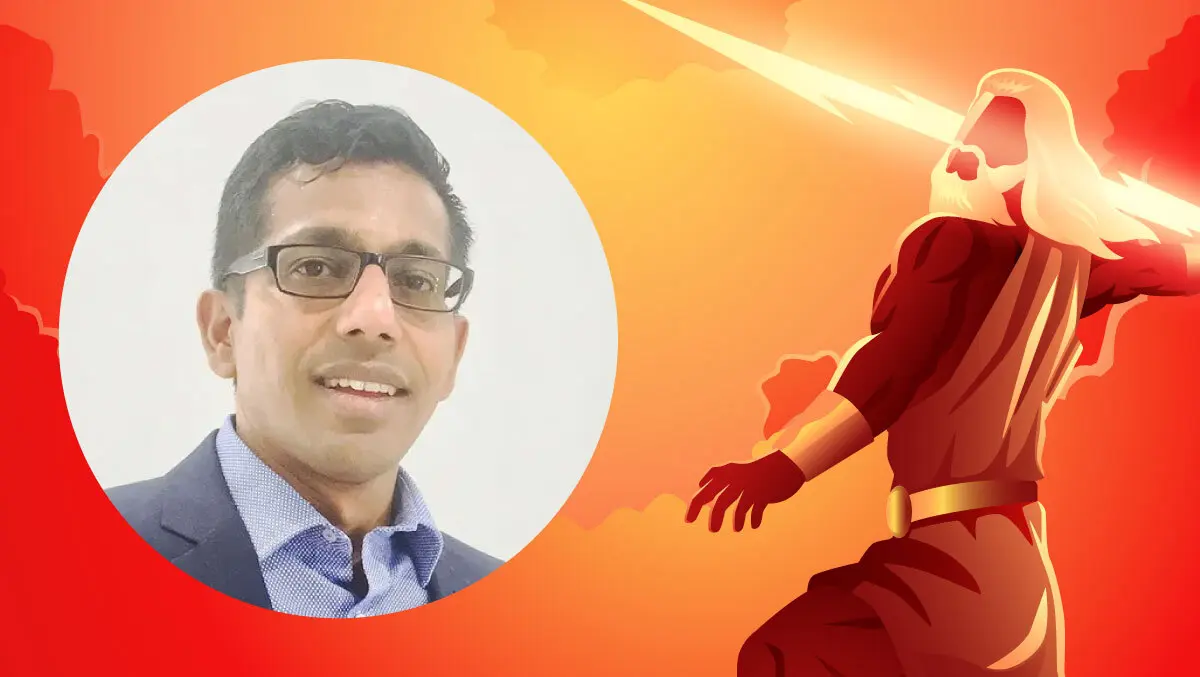
Titan of Tech - Rakesh Naidu of Wolters Kluwer
Innovation and trust are not often paired together in the same breath, but for Rakesh Naidu, Head of Product – Software Solutions at Wolters Kluwer Australia, the two are inseparable.
In his words, the company's vision is "to deliver intelligent, connected and trusted software" that not only simplifies the most complex financial and tax challenges but also creates clear strategic value for customers.
Naidu, who has been with the organisation for over four years, is responsible for the software product vision, strategy and innovation for both corporate and accounting firm customer segments at Wolters Kluwer.
Based in Sydney but managing a remit that stretches across APAC and into global markets, he is clear-eyed about the responsibility. "My responsibility is APAC, but the products I manage serve customers worldwide," he said.
Technology pioneer
BEPS Pillar Two – a new global minimum tax requirement mandated by the OECD – introduced a new layer of complexity for global tax teams, requiring them to navigate intricate rules around minimum taxation and data aggregation across jurisdictions. Wolters Kluwer emerged as a pioneer in this space by developing one of the first comprehensive software solutions to manage end-to-end Pillar Two compliance.
"Our CCH Integrator platform is being used by tax professionals across the globe to manage data, automate calculations, model scenarios, and ensure alignment with local laws - transforming a daunting regulatory shift into a manageable, strategic process," said Naidu. "Helping our customers navigate complexity with confidence is core to what we do."
Beyond compliance
At the heart of his mission is a determination to shift the focus of tax and finance leaders. "For CFOs and heads of tax, we are looking at how we can shift from a pure tax compliance focus to how we can use tax data insights to improve business performance, transparency and stakeholder trust," he explained.
The ambition is to reduce risk while enabling informed decision-making, even in the face of increasingly global complex regulatory environments such as BEPS Pillar Two and ESG reporting.
"To simplify this complex environment, we aim to develop a new data insights offering designed to deliver enriched, actionable intelligence where it matters most - in our customers' workflows," said Naidu. "By integrating rich financial and tax data from enterprise and layering in our deep tax research content alongside external datasets, we will create compelling new value for our customers. This will give them exceptional clarity for strategic decision-making, especially in the moments that matter most."
Listening to customers
That clarity, he stressed, comes from listening carefully to customers. Earlier this year, his team launched a new workflow product born directly from user feedback about the difficulty of tracking work across complex organisations.
The project came to life during Wolters Kluwer's quarterly innovation week – a hackathon-style initiative where teams are given five days to turn ideas into working prototypes. "Within four to five days we developed a prototype, and within four months we tested it with customers and launched it to early adopters," he recalled. "It shows how quickly we can unlock value for customers when we listen closely to them."
Naidu meets clients regularly and describes those sessions as critical.
"It's an important way to sense check where they are today and the challenges they face, especially as new regulations add complexity," he said.
Responsible AI
Like many technology leaders, Naidu is exploring how artificial intelligence can be embedded into workflows. Yet he remains cautious.
"While there is a lot of innovation around AI, we are definitely seeing hallucinations, which could lead to incorrect decisions with serious consequences," he warned.
For Wolters Kluwer, responsible use of AI means balancing automation with oversight.
"Technology can help our customers with the basics, so they have the capacity to make better decisions in the moments that matter," he said. "It's about embedding AI responsibly, combining regulatory updates and analytics to surface insights when they are needed most."
"Our CCH iKnowConnect product in the Research & Learning portfolio is an excellent example of our commitment to 'expert AI', having recently launched RAG AI-enabled search functionality to our trusted tax and legal research platform," he added.
A culture of innovation
Naidu views innovation as a cultural force rather than a series of projects. He outlines three levels: day-to-day flexibility for teams to test new ideas, quarterly innovation weeks, and global competitions such as the Code Games and Global Innovation Awards.
"When we think about innovation, it's about giving people a framework, but not a rigid structure, because that's where the best creative ideas come from," he said. Many of the concepts developed during these events have gone on to become real products for customers.
Hackathons in particular, he explained, are energising. Day one is spent gaining a deep understanding of the customer problem, followed by rapid design and coding.
"By the end of day three or four, we have a working prototype that we showcase," Naidu said. "It's about experimenting responsibly while still keeping reliability front of mind."
What makes Rakesh a Titan of Tech?
That balance between reliability and experimentation runs through his leadership style. A typical week sees him working across sales, marketing, operations and technology, with Fridays dedicated to deep problem-solving sessions with his team.
"I find Friday sessions refreshing because they give us space to step back, think differently and focus on the complex customer problems," he said.
For Naidu, the guiding principle remains unchanged: everything must come back to customer value.
"Yes, AI is a big buzz in the market," he reflected. "But for us it's about integrating any kind of new technology responsibly and in a way that creates genuine value for the customer. It's measured, it's careful, and it's about making a material difference without having an adverse impact. At the end of the day, everything we do is centred around the customer.
